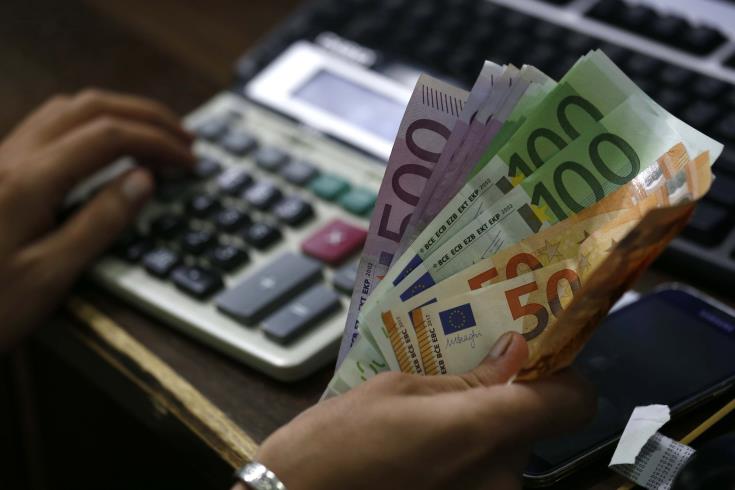Despite pressures from the government and EU monetary bodies, Cyprus banks still charge higher interest rates for loans and lower rates for deposits than most eurozone countries.
Data released by the European Central Bank (ECB) for April shows the average interest rate for time deposits of up to one year for households dropped to 0.41% compared to the previous month’s 0.47%.
The average deposit interest rate for households stands at 2.27% in the Eurozone, highlighting once again that Cypriot depositors are among the most disadvantaged in the EU.
Italy has the highest interest rate for deposits, with 3.11%, followed by France with 3.03%, and Belgium with 2.65%.
Greece has a weighted average interest rate of 1.22%.
The corresponding rate for deposits from non-financial corporations in Cyprus is 0.73%.
The average interest rate for business deposits in the Eurozone is 2.79%, a 2.06% difference compared to Cyprus.
At the same time, Cypriot Banks maintain one of the highest lending rates in the Eurozone.
According to the report, the average interest rate for mortgages in Cyprus is 4.45% compared to the 4.03% Eurozone average.
As a result, the spread between housing loan and deposit rates now stands at 3.62%, one of the highest in the Eurozone.
Greece has a mortgage rate of 4.06%, Spain 3.47%, France 2.99%, Luxembourg 4.11%, Malta 2.56%, Austria 4.06%, Slovakia 3.71%, and Finland 3.62%.
For business loans, Cypriot entrepreneurs borrow at higher interest rates than their counterparts in other Eurozone countries, at 5.31%, compared to the Eurozone average of 4.74%.
Meanwhile, the Cyprus Central Bank’s annual report for 2022, published last week, confirmed the significant increase in lending rates compared to deposit rates.
“Amid the normalisation of the ECB’s monetary policy, lending rates in Cyprus followed an upward trend in 2022, with a greater pace in the second half of the year.
“The lending rates for households and businesses reached 3.34% and 4.71%, respectively, by the end of 2022, compared to 2.21% and 3.25% at the end of 2021.
“Domestic deposit rates experienced a smaller increase of 29 and 59 basis points respectively from the beginning of the year, closing at 0.35% for households and 0.61% for businesses by the end of 2022”.
Finance Minister Makis Keravnos has urged Cypriot banks to alleviate the cost-of-living squeeze on households by absorbing shocks from interest hikes introduced by the ECB.
Keravnos repeatedly urged the banks to lower mortgages with floating interest rates and increase deposit rates.
The ECB raised interest rates by another 25 basis points in mid-June, signalling more to come as it significantly revised its core inflation forecasts.
It was the eighth time the ECB increased interest rates from July 27, 2022, pushing its key rate up by a cumulative 375 basis points, with the deposit rate reaching 3.5% and the main refinancing rate of 4%.
With inflationary pressures remaining, the head of the European Central Bank, Christine Lagarde, made it clear the cessation of interest rate increases is not in the bank’s immediate plans.
Eurozone inflation slowed to 6.1% in May from 7% in April, although still short of the ECB’s 2% target.









